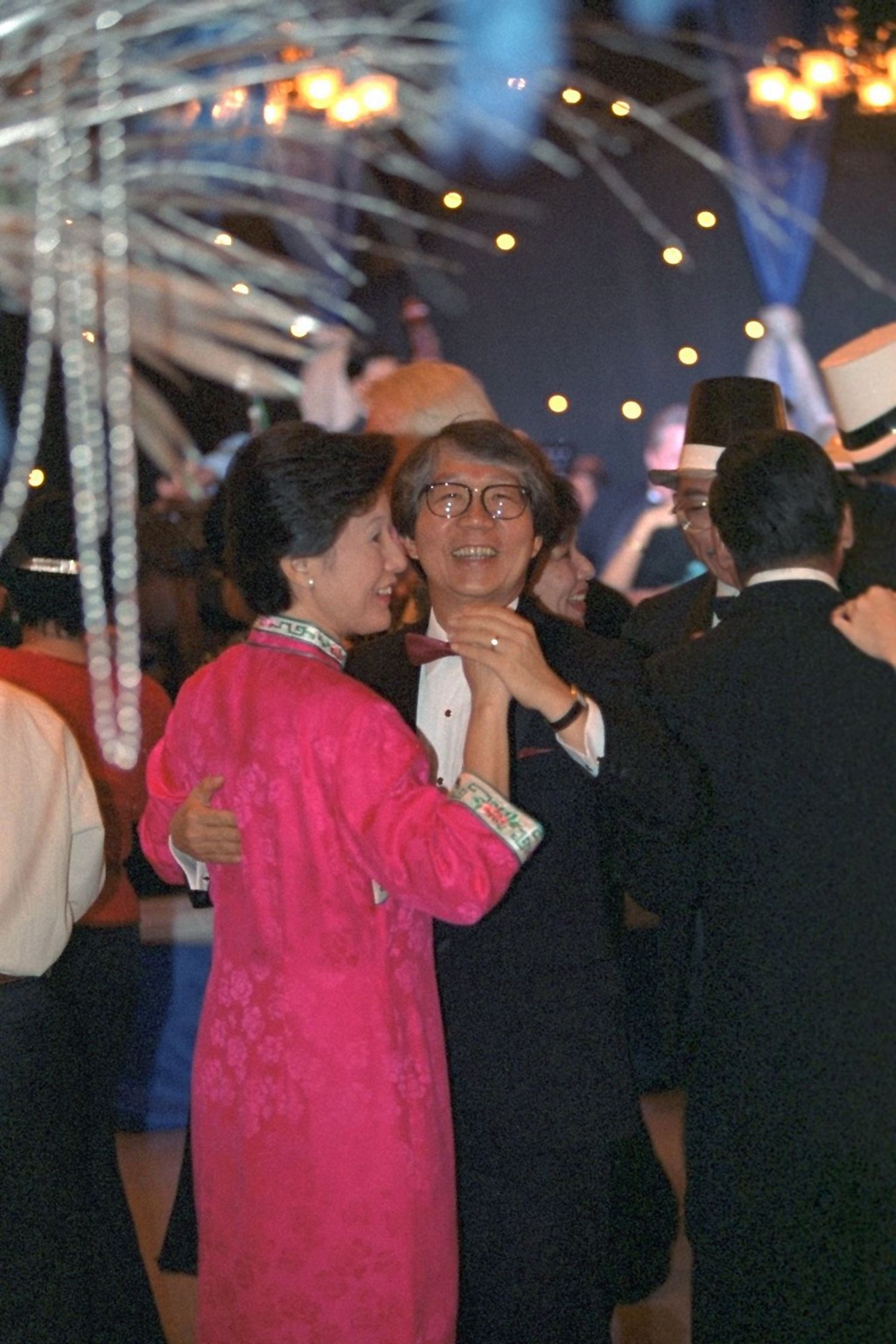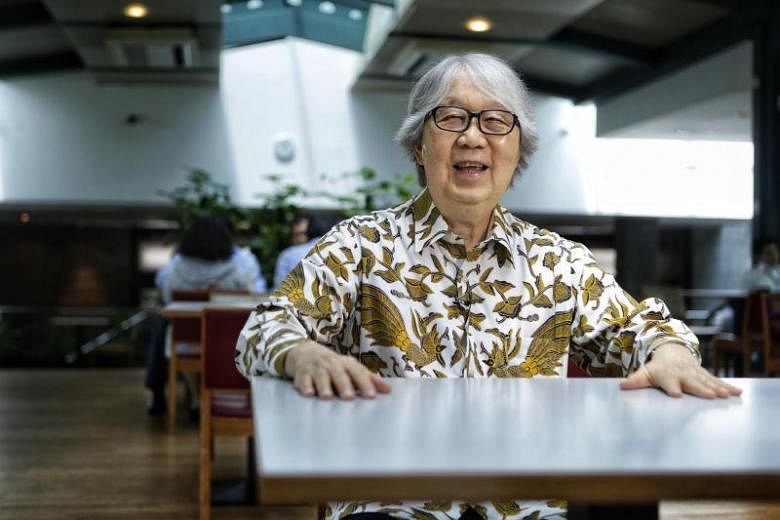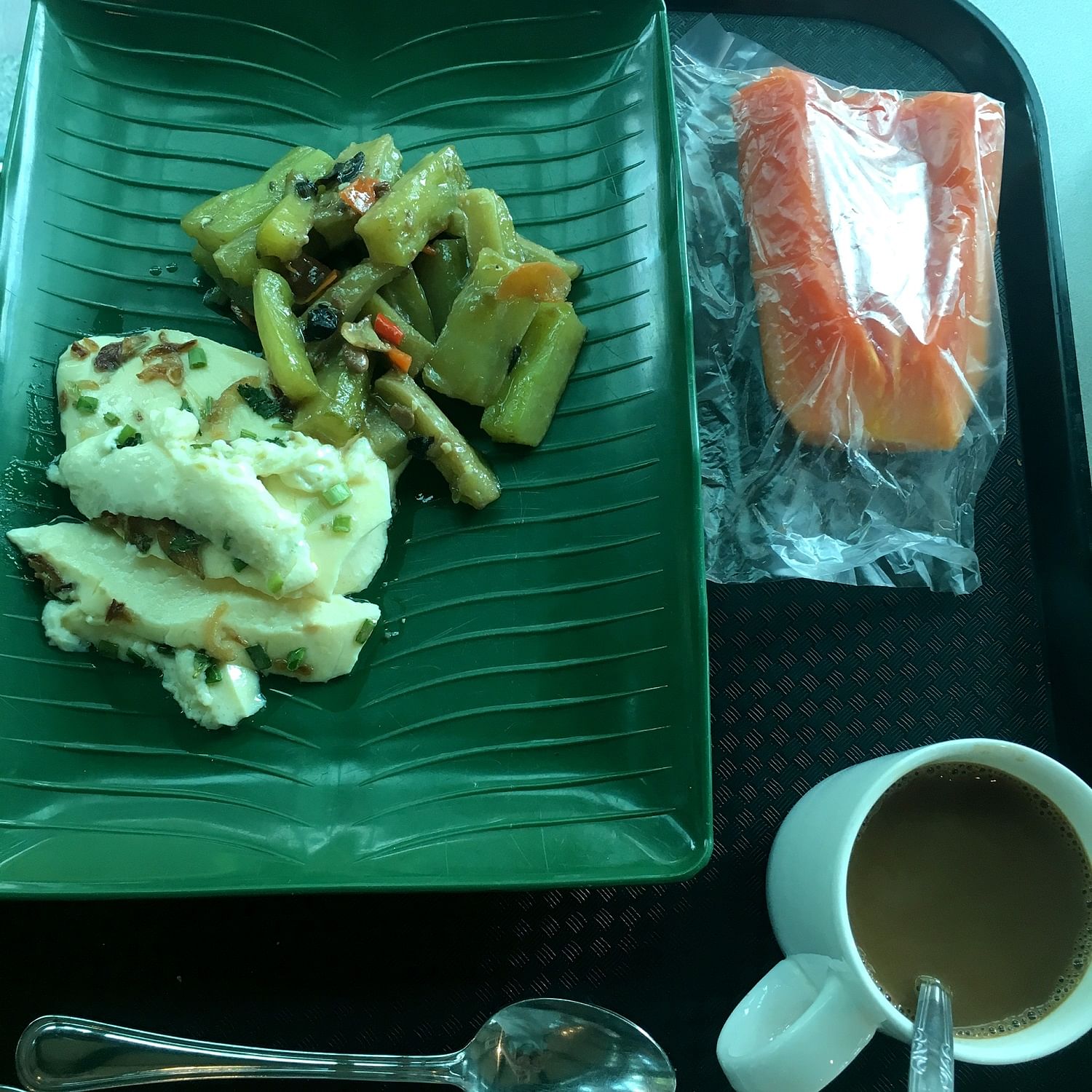Professor Tommy Koh is such a people person he can charm even a rival in love.
Back in the 1960s, he was dating his then-girlfriend-later-wife Poh Siew Aing, who was a medical student staying in houseman quarters at the Singapore General Hospital.
Their courtship was smooth sailing except for one episode, he relates.
"One day when I went to visit her, one of her ex-boyfriends was angry and let out the air in my car tyre, which I thought was not very nice," he says in his trademark mild-mannered way.
"So I managed to track him down and had a nice talk with him. Yah, had a nice talk with him and we became friends."
Winning friends and influencing people is something the Ambassador-at-Large has done all his life.
In his long career as an academic and a diplomat, he has represented Singapore in countless international meetings.
Along the way, he has charmed and cajoled world leaders and officials, all in the name of advancing Singapore's interests.
But it is not just on the work front that he is so genial. He is nice to everyone, no matter what their station in life is. He has no airs, takes a genuine interest in people, helps them when he can, and remembers their names.
Last month, to mark his 80th birthday on Nov 12, a book was launched paying tribute to him and his work. Tommy Koh - Serving Singapore And The World is a collection of 46 essays. They cover his work in diplomacy, international law, the arts and civil society, as well as lesser-known causes like hawker heritage and guide dogs for the blind.
The essays were written by people who have worked with him, and their affection and respect are palpable. This was also evident at a warm, well-attended event to launch the book at a hotel on Nov 11.
For lunch, he has proposed "the beautiful canteen" at the Ministry of Foreign Affairs (MFA), a conserved, colonial building once occupied by the British army.
I'm wondering to myself if a canteen can be beautiful, but I have to agree with his description.
It is a very pleasant space with lots of natural lighting, greenery and overlooking soothing, landscaped grounds.
He meets me at MFA's reception area and leads me to the canteen, pausing to say hello to the staff we pass. There is only one stall, selling halal food and drinks. He chats with the stallholders and tells me their ayam penyet is very good.
He hands me a tray and I proceed to get rice, bitter gourd, ladies' fingers and tofu. He says he's trying to lose weight and so asks for just a helping of bitter gourd and egg tofu, and a slice of papaya. We carry our trays to a table by the window.
He says his wife believes that bitter gourd is good for health. In Hokkien, the vegetable is called kor (bitter) kuey (gourd), he notes.
"I tried to convince her in the early days of our marriage that people whose surname is Koh don't like to eat 'kor'," he jokes.
He's so good at making people feel comfortable that I have no qualms voicing that he seems a little scared of Mrs Koh, who's known to be protective of him. He had agreed to this interview only after checking with her.

"Oh, absolutely," he says at once. "I think between the two of us she has a stronger personality. I'm very easy-going."
HIS achievements have been long enough to fill a book - which, literally, they have.
I ask what has brought him the greatest satisfaction in his career, and he names a few.
The first was how, as Singapore's permanent representative to the United Nations in the 1970s and 1980s, he helped rally votes to ensure that the puppet government installed by Vietnam in Cambodia did not receive recognition.
The Asean agenda was to liberate Cambodia from foreign occupation and the tyranny of the Khmer Rouge.
The campaign took more than 10 years, and helped establish the prestige of Asean as an effective regional body, he says.
The second was how he presided over negotiations that led to the landmark UN Convention on the Law of the Sea, and the third was how he chaired the Preparatory Committee and the Main Committee of the 1992 Earth Summit.
He is also gratified that as Singapore's envoy to the United States, he'd managed to arrange for the late Lee Kuan Yew to address a joint session in the US Congress. "The 9th of October, 1985, was a memorable day," he says.
He also helped draft the Asean Charter, and led the Singapore delegation to negotiate the agreement with China to establish diplomatic relations in 1990.
As a lawyer, he felt privileged to have represented Singapore in the International Court of Justice and the International Tribunal for the Law of the Sea.
Because of his relaxed manner, he makes it all look so easy, I remark.
"They were not easy," he laughs. "All the jobs were so hard."
What helped was his mindset.
"I was always optimistic. Even when I faced great challenges, I retained my optimism and positive mindset, kept my sense of humour, and always thought - there must be a way of solving problems."
Throughout his career, he has always believed in the importance of teamwork and people-to-people ties. When he negotiates, he starts on the basis that "at the end of the day, we are human beings, so let's be friends first, try to develop a relationship, some trust in each other. Don't see each other as an adversary, but if we have a difficult problem, let's look at the problem".
He says it is not enough for Singaporeans to be smart at the negotiation table. EQ, emotional intelligence, as well as CQ, or cultural intelligence, are crucial too.
This means understanding the other country's cultures, taboos and way of thinking so you know what to avoid.
"We must understand that we live in different cultural boxes, so when we work with either one of our neighbours, we must understand their cultural box and where they're coming from and how they think and, if possible, conduct ourselves in a manner that would be acceptable or indeed even admired by them.
"They would then say, 'Sumiko is a very halus person.' You're a very cultured person, rather than coming across as cold and arrogant, condescending. So we have a lot to learn."
But can this be learnt, I ask.
He answers obliquely: "In spite of our success, we must remain very Confucian, very humble and modest."
I wonder if an attitude like this can be imparted to young diplomats. "The junior will learn from the senior," he says.
But do all senior officials imbibe that philosophy?
He smiles and relates this story.
A permanent secretary once asked him why it was that he got along well with everyone, including the permanent secretary's opposite number, who didn't like him.
Prof Koh replied that it helped that he and the other man were old friends who had served together in the UN. But it was also because "I show him friendship and warmth. I try not to embarrass him and put him down".
Singaporeans have "a bit of a kiasu mindset that we must win every point", he says gently.
He remembers how, during negotiations with Malaysians, his younger colleagues would slip him a note saying, "Prof, don't give in."
"So after the session, I would try to explain that even if I win every point, it means that my counterpart lost every point. So how can he go back home and sell the package if he lost every point?
"I say, no, no, you know we must protect our core interests. But on non-core issues, we must concede so that you have a balanced outcome, one that is durable."
He has worn many hats, but if there is one thing he has never been interested in, it's been making money. That was the reason he didn't choose to practise law.
"It was a great disappointment to my mother, you know. Being Shanghainese, she was very interested in making money.
"Before my wife married me, she pulled her aside, had a good talk with her and said, 'You're going to marry my stupid son. Can you please convince him to leave the law school, go and practise law. You will be a very rich woman.'
"My wife said, 'Your mother passed me this message.' I said, 'Yah, I know, she thoroughly disapproves of my profession.' She thought I was wasting my talent."
His mother was a feisty woman who was born in Shanghai. She ran away from home to join a performing-arts troupe called Mei Gui (rose) and was a dancer and actress. "According to my wife, my show-off genes are from my mother," he jokes.
The troupe toured South-east Asia, which was how she met Prof Koh's father, who had studied in Shanghai and could speak the dialect. His father was an extroverted businessman with a gift for languages, and could speak Chinese, English, Malay, Thai, French and German.
Prof Koh, the eldest of three sons, was inspired to do law after witnessing the late David Marshall and Lee Kuan Yew battle it out in the Legislative Assembly.
Raffles Institution, where he studied, was then sited near the assembly and he and his friends would head there to watch the two lawyer-politicians argue.
He was in the pioneer batch of the University of Singapore's law school and worked for a year with Mr Marshall after he graduated. But an incident persuaded him that he was not cut out to be a lawyer.
A young worker had died in an accident and he had to represent an insurance company on the matter of compensation. It emerged that the worker's mother had adopted him through customary, not legal, means. Under the law, she was not entitled to compensation.
"When I discovered this, I struggled with my own conscience. Should I or should I not raise a legal objection?"
He tried to persuade the insurance company to offer compensation, arguing that the woman had looked after the man from a young age, but it refused.
It was a traumatic experience and he decided to go back to academia "to take on law reform as a life mission".
As things turned out, his life detoured to diplomacy, then roles like director of the Institute of Policy Studies and chairman of the National Arts Council, among others.
I ask why he never entered politics. He had opportunities but declined because he wanted the freedom to continue voicing independent views. His wife also told him he wouldn't be happy.
His days are packed. He gets up at 5.30am and swims, and is usually at work by 8.15am. The day after we meet, he's chairing a forum on philanthropy.
He has two young grandchildren, Toby and Tara, from his entrepreneur son Aun, 45.
His other son Wei, 48, who is in publishing, is married but does not have children.
We've finished lunch and my colleagues have arrived to take the photographs and video.
While waiting for the camera to be set up, he carries his tray back to the tray corner.
I ask if he is ever angry.
"From time to time, but I don't hold grudges."
He seems to have had such a happy life and I wonder if there is a secret to all this.
He says he has tried to live an ethical life and "I believe that the most important virtue is kindness".
"I'm born happy," he adds, simply. "And I guess being an optimist and having a positive mindset helped. I guess I'm a very people person."
Watching him greet and offer kindly words to my photographer, videographer and producer colleagues, the description is apt.
Twitter @STsumikotan
•Tommy Koh - Serving Singapore And The World is available at bookshops for $36 (excluding GST).
SCAN TO WATCH
Professor Tommy Koh on his role as ambassador. http://str.sg/tommykoh



